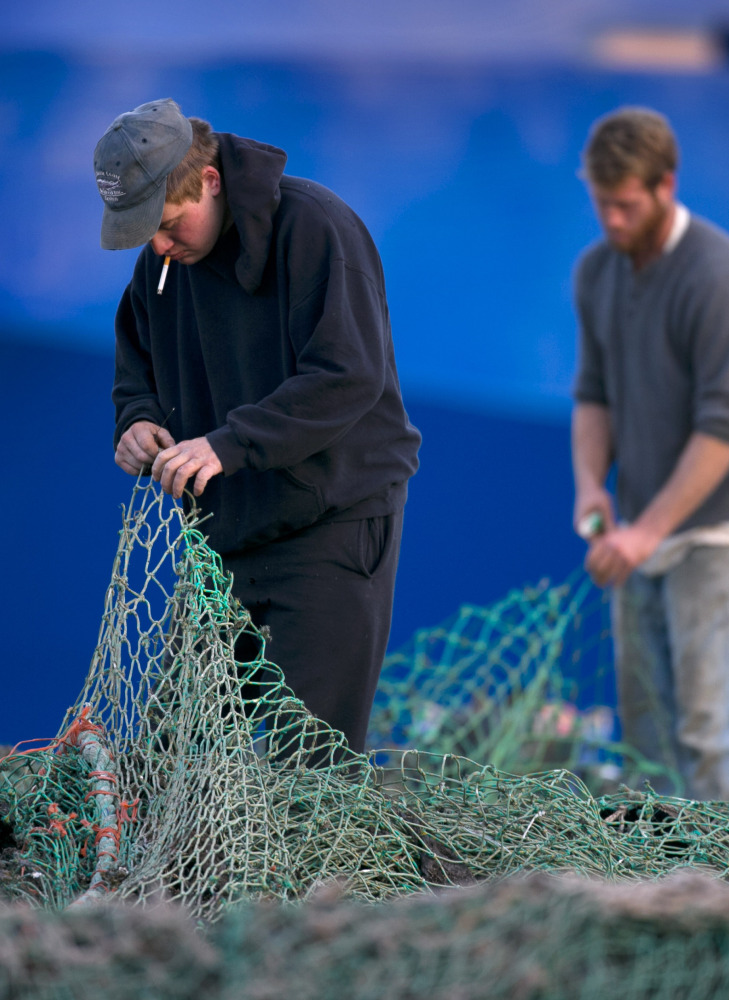PORTLAND — I managed to wear out my car’s ice scraper this year, and I recall one week where I had to shovel my driveway every day. After a winter this like this, it’s tempting to breathe a sigh of relief and conclude that maybe this global warming thing is finally over.
In reality, global warming is still going strong, and our experience this winter is just part of occupying a small portion of a big planet. While we were cold, there were plenty of other places that were warmer than normal, including Alaska, Europe and Australia. If you average over the entire globe, the December-through-February temperature was the seventh warmest ever. All of the other six occurred after 1998 and most in the last 10 years – exactly the pattern you’d expect on a warming planet.
Over the longer term, we are seeing clear signs of warming right here. The Intergovernmental Panel on Climate Change, the scientists tasked with assessing what we know about climate change, just released a report titled “Climate Change 2014: Impacts, Adaptation, and Vulnerability.” Many of the changes predicted in their report – including warming, changes in animal distributions and changes in productivity – are already apparent in the Gulf of Maine.
PAST CAN’T GUIDE FUTURE
Increased carbon dioxide in the air has already led to warming in the atmosphere and in the ocean. Temperatures in the Gulf of Maine have increased by an average of a half-degree Fahrenheit each year since 2004.
Even after this cold winter, the majority of the Gulf of Maine is still warmer than normal, and over the past 10 years the Gulf of Maine has warmed faster than 99.9 percent of the global ocean.
Fishermen in the Gulf of Maine now regularly catch black sea bass, a species more associated with Rhode Island than Maine, and the fishery for the cold-loving Northern shrimp is closed because of low abundance.
The main conclusion of the IPCC’s report is that we need to consider the impacts of climate change as we plan for the future.
Because of the rapid changes we’ve seen in the Gulf of Maine, scientists, managers, and the fishing industry are now working to develop strategies to adapt fisheries in our region to changes in the ocean.
The most important part of adaptation is acknowledging that the environment is not constant. Right now, many of our decisions are made in reference to the past, even as we move into a world where the past is no longer a reliable guide.
For example, consider black sea bass. The Atlantic States Marine Fisheries Commission is responsible for managing this species, and they allocate a certain number of fish to the fishermen in each state.
Because black sea bass have historically been fished in the mid-Atlantic, Maine has only a very small allocation. This reliance on history in managing fisheries, coupled with the lack of respect that fish have for political boundaries, makes it difficult for fishermen to adapt to changes in the ecosystem.
Adapting will require the development of new tools to help people make informed decisions as the environment changes.
POSSIBLE TO FORECAST CHANGES
For example, the Northeastern Regional Association of Coastal and Ocean Observing Systems operates a network of buoys in the Gulf of Maine.
The sensors on these buoys can tell us in real-time whether the Gulf of Maine is running hot or cold. We are developing models that will allow us to use this information to forecast changes in the lobster fishery several months in advance.
Our hope is that these forecasts can give the lobster industry early warning of situations like the one in 2012 when a warm winter and spring led to a glut of lobsters and collapse in price.
The warming in the Gulf of Maine, which is driven by both human-caused climate change and natural climate variability, places us on the front lines of climate change, and the challenges we are facing are only going to become more widespread.
We must work together to develop tools and strategies to confront these challenges and to show the world how to make our communities and our industries more resilient to the changes that we know are coming.
— Special to the Telegram
Send questions/comments to the editors.



Success. Please wait for the page to reload. If the page does not reload within 5 seconds, please refresh the page.
Enter your email and password to access comments.
Hi, to comment on stories you must . This profile is in addition to your subscription and website login.
Already have a commenting profile? .
Invalid username/password.
Please check your email to confirm and complete your registration.
Only subscribers are eligible to post comments. Please subscribe or login first for digital access. Here’s why.
Use the form below to reset your password. When you've submitted your account email, we will send an email with a reset code.